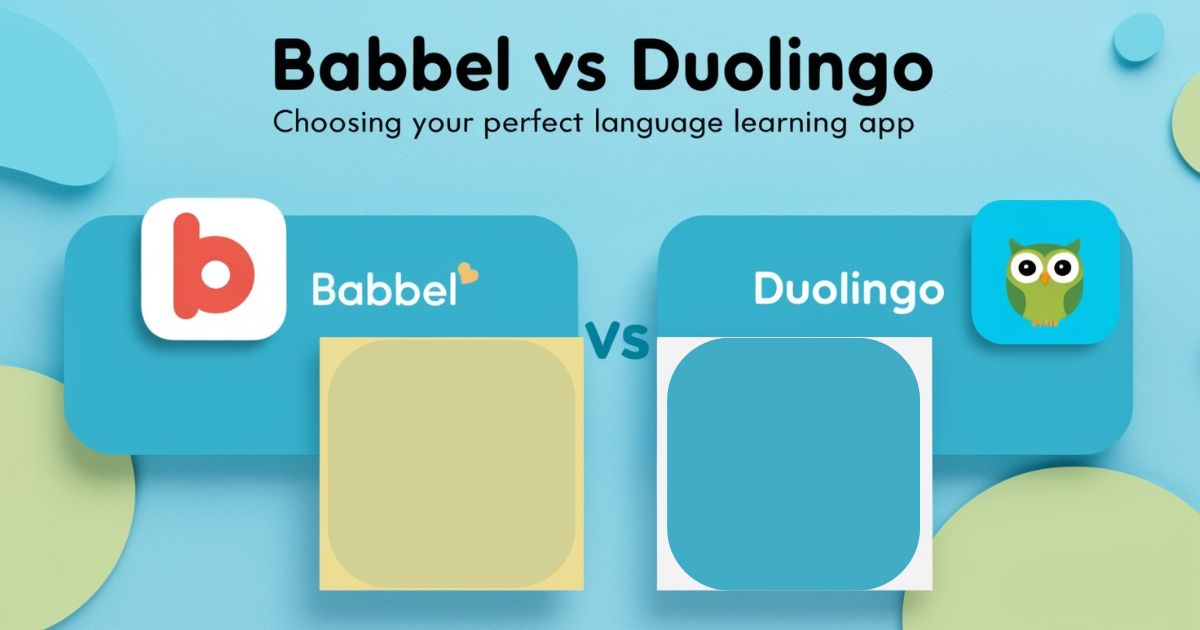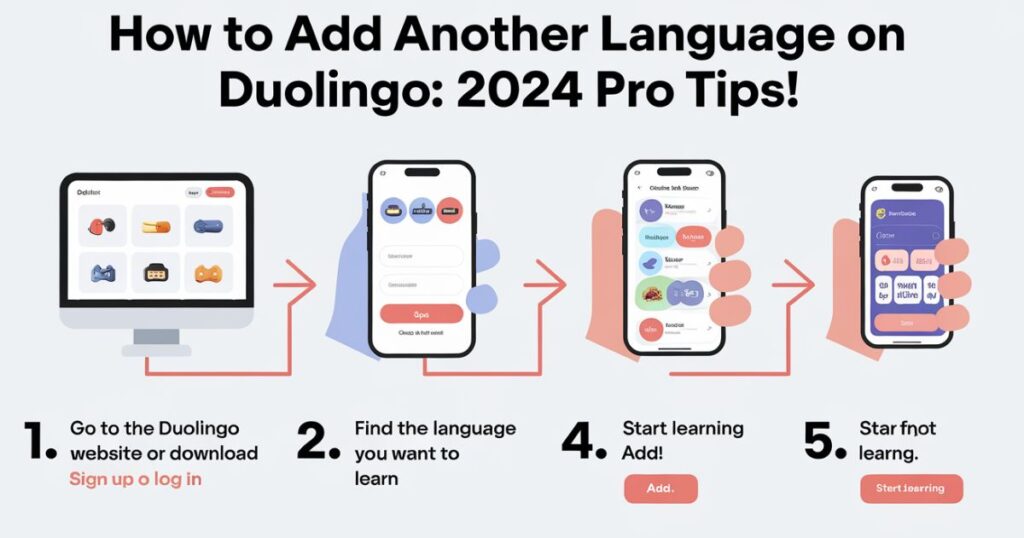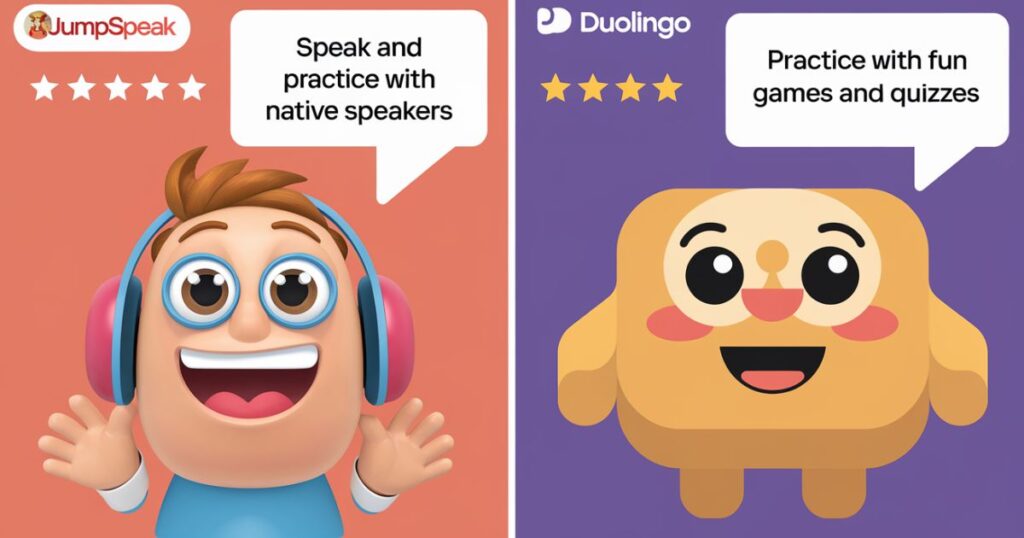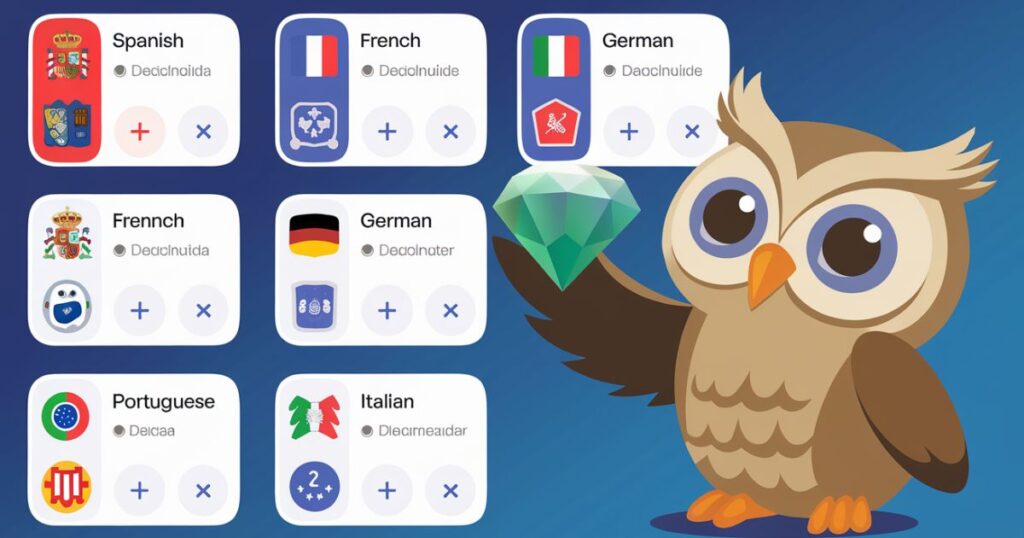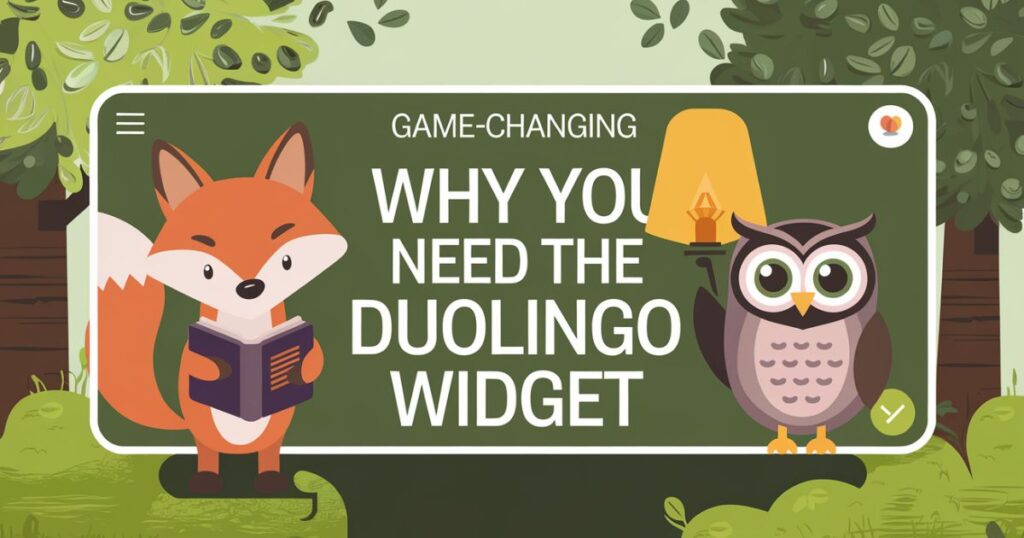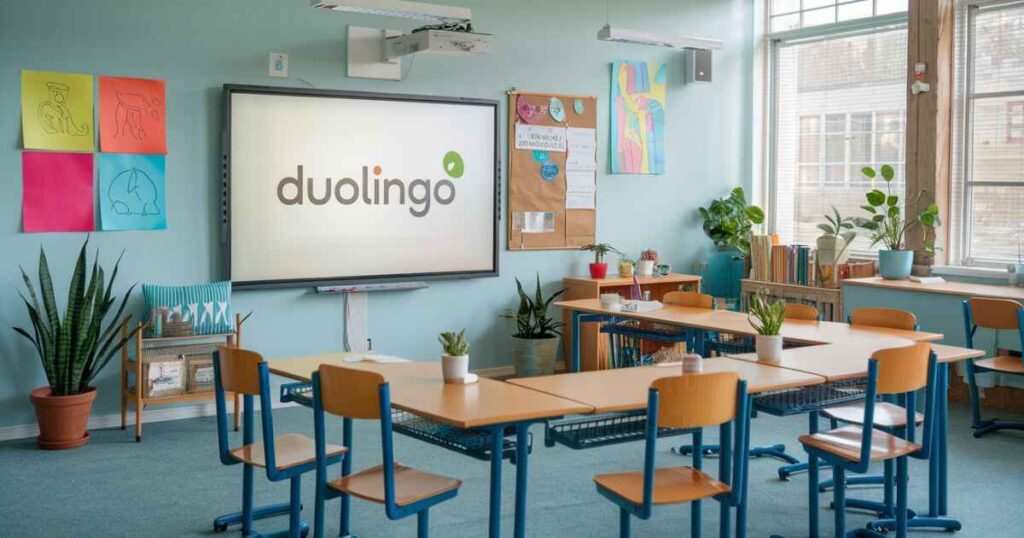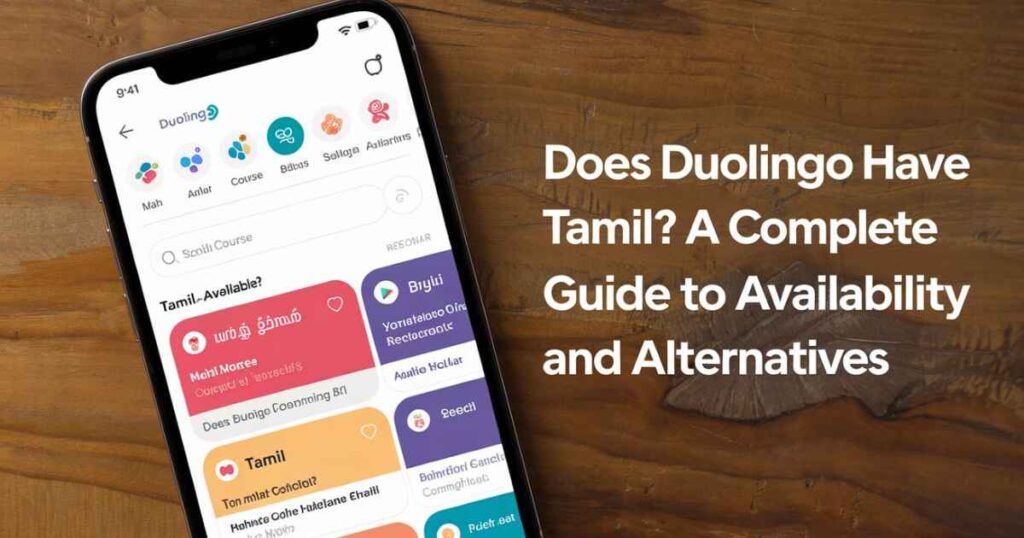In today’s interconnected world, mastering a new language has become more accessible than ever through digital learning platforms. Among the many options available, Babbel and Duolingo stand out as leading choices for language enthusiasts. These platforms have revolutionized language learning, making it possible for anyone with a smartphone to embark on their linguistic journey.
Understanding the Basics: A Comprehensive Overview of Babbel vs Duolingo
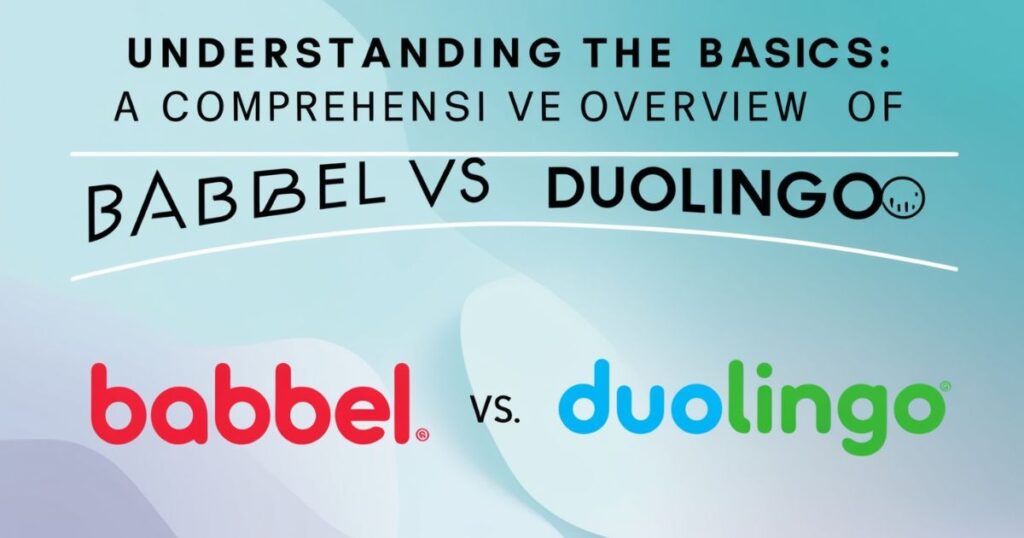
Before diving deep into the specifics, let’s understand what makes these platforms unique. Babbel takes a structured, conversation-based approach reminiscent of traditional language classes, while Duolingo transforms learning into an engaging game-like experience. Both platforms have their merits, but they cater to different learning styles and goals.
Core Comparison Table of Babbel vs Duolingo
| Feature Category | Babbel | Duolingo |
| Teaching Approach | Traditional, structured learning | Gamified, interactive learning |
| Primary Focus | Real-world conversations | Vocabulary and basic grammar |
| Cost Structure | Subscription-based ($13.95/month) | Free with ads / Premium ($12.99/month) |
| Available Languages | 14 languages | 40+ languages |
| Target Audience | Serious language learners | Casual learners and beginners |
| Lesson Duration | 15-30 minutes | 5-15 minutes |
| Offline Access | Yes (Premium) | Yes (Super) |
More Post: Jumpspeak vs Duolingo: The Ultimate Language Learning App Comparison (2024)
Deep Dive: Teaching Methodologies and Learning Experience of Babbel vs Duolingo
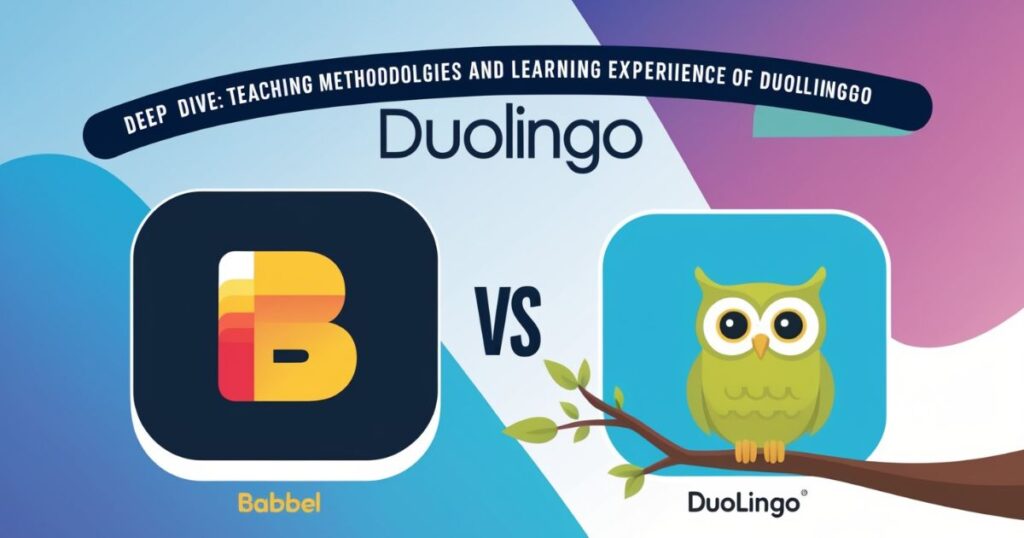
Babbel’s Sophisticated Approach
Babbel’s methodology centers around practical communication skills. The platform believes in immersing learners in real-world scenarios from day one. Each lesson builds upon previous knowledge, creating a comprehensive learning experience that mirrors natural language acquisition.
The platform’s structured lessons typically include:
- Contextual vocabulary introduction
- Grammar explanations in your native language
- Interactive dialogue practice
- Cultural insights and nuances
- Pronunciation exercises with speech recognition
Duolingo’s Innovative Learning System
Duolingo has revolutionized language learning through its gamified approach. The platform uses scientific principles of spaced repetition combined with engaging gameplay elements to keep learners motivated.
Key elements of Duolingo’s system include:
- Skill tree progression
- Hearts system for lives
- Experience points (XP) and achievements
- Social features and leaderboards
- Stories for reading comprehension
Course Quality and Language Options of Babbel vs Duolingo
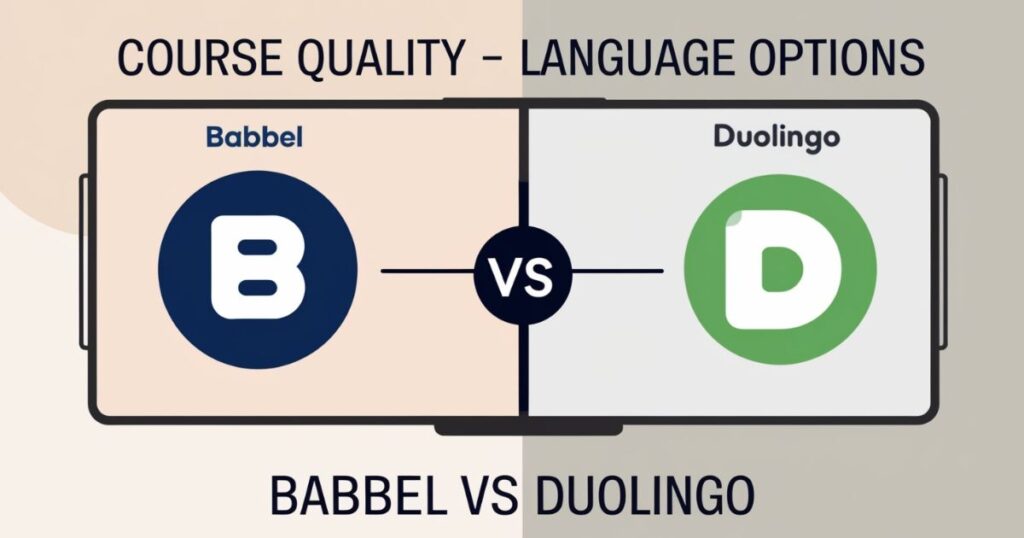
Babbel’s Premium Content
Babbel’s course material is developed by language experts and native speakers. The platform offers:
| Course Aspect | Details |
| Language Quality | Professional voice actors |
| Content Focus | Business, travel, culture |
| Difficulty Levels | Beginner to Advanced |
| Special Features | Business language modules |
Duolingo’s Extensive Library
Duolingo’s approach to content creation combines expert knowledge with community input:
| Course Element | Features |
| Language Variety | 40+ languages including fictional |
| Content Style | Uniform across languages |
| Special Content | Stories, podcasts |
| Community Input | User-generated content |
Premium Features and Value Proposition Babbel vs Duolingo
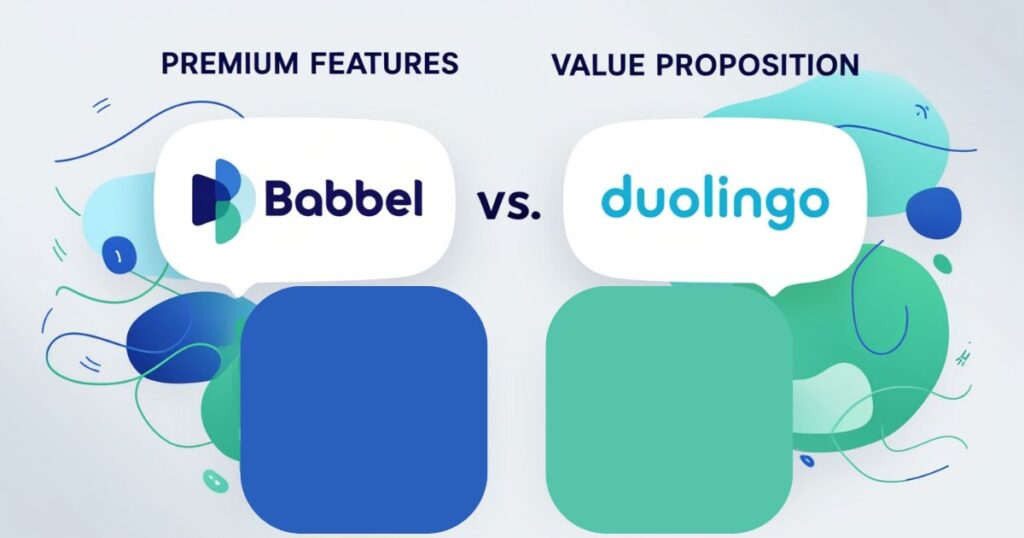
Babbel Premium Benefits
The premium subscription offers comprehensive features:
- Live online classes with native speakers
- Downloadable content for offline learning
- Personalized review sessions
- Advanced grammar tools
- Progress tracking analytics
Duolingo Super Advantages
The premium version includes:
- Ad-free experience
- Unlimited hearts
- Offline lessons
- Mistakes review
- Monthly streak repair
Real-World Application and Effectiveness of Babbel vs Duolingo
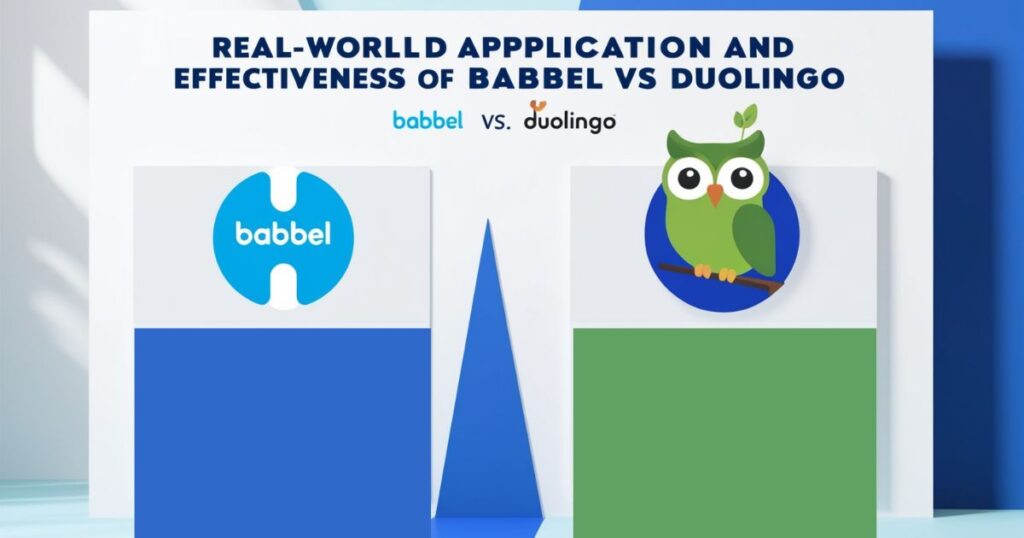
Practical Language Usage
Both platforms approach practical application differently:
Babbel focuses on:
- Business communication
- Travel scenarios
- Cultural understanding
- Situational dialogues
Duolingo emphasizes:
- Basic communication skills
- Grammar foundations
- Vocabulary building
- Reading comprehension
Success Stories and User Experiences
Real users report varying experiences:
“Babbel helped me achieve business fluency in German within 6 months of consistent practice.” – Marketing Professional
“Duolingo’s gamified approach kept me motivated to learn Spanish daily. After a year, I could handle basic conversations.” – College Student
Making Your Choice: Decision Factors of Babbel vs Duolingo
Consider these key aspects when choosing:
Time Commitment
- Babbel: Requires dedicated study time
- Duolingo: Flexible, bite-sized lessons
Learning Goals
- Professional development: Consider Babbel
- Casual learning: Duolingo might be sufficient
Budget Considerations
- Limited budget: Start with Duolingo’s free version
- Investment in learning: Babbel’s structured approach
The Future of Language Learning of Babbel vs Duolingo
Both platforms continue to evolve, incorporating new technologies and teaching methods. Babbel is expanding its live class offerings, while Duolingo is developing more advanced content and features.
FAQ’s About Language Learning Apps of Babbel vs Duolingo
Is Babbel More Effective Than Duolingo?
The effectiveness depends on your learning goals and style. Here’s a detailed breakdown:
Babbel excels in:
- Structured language acquisition
- Real-world conversation practice
- Grammar explanations
- Business language skills
Duolingo leads in:
- Basic vocabulary building
- Casual learning engagement
- Multiple language exploration
- Community interaction
Research shows Babbel users tend to develop stronger conversational skills, while Duolingo users often build a solid foundation in multiple languages. A study by City University of New York found that 15 hours of Babbel usage equates to one college semester of language learning.
What is the #1 Best Language Learning App?
There isn’t a single “best” app for everyone. The most effective app depends on:
| Learner Type | Recommended App |
| Serious Language Students | Babbel or Rosetta Stone |
| Casual Learners | Duolingo or Memrise |
| Business Professionals | Babbel or Busuu |
| Travel-Focused | Pimsleur or Babbel |
Your ideal choice should align with:
- Learning goals
- Available study time
- Preferred teaching method
- Budget constraints
Is Babbel 100% Free?
No, Babbel is not free. Here’s the pricing structure:
Subscription Options:
- Monthly: $13.95/month
- Quarterly: $9.95/month
- Bi-annual: $8.45/month
- Annual: $6.95/month
Babbel offers:
- Limited free trial lessons
- Money-back guarantee
- Occasional promotional discounts
- Student discounts
Will Babbel Help Me Become Fluent?
Babbel can significantly contribute to language fluency, but complete fluency requires:
What Babbel Provides:
- Structured language foundation
- Practical conversation skills
- Cultural understanding
- Consistent practice opportunities
Additional Requirements for Fluency:
- Regular practice with native speakers
- Immersion in the language
- Varied learning resources
- Long-term commitment (typically 6-12 months for basic fluency)
User experience shows that Babbel can help achieve:
- B1 level in 5-6 months of dedicated study
- Professional working proficiency in 8-12 months
- Conversational fluency in chosen topics
Remember: Language learning is a journey that requires consistent effort and multiple resources. While Babbel is an excellent tool, it works best when combined with other learning methods and real-world practice.
Conclusion: Making the Right Choice
The choice between Babbel and Duolingo ultimately depends on your personal goals, learning style, and commitment level. Both platforms offer valuable tools for language acquisition, but they serve different purposes and learner types.
For serious language learners seeking structured, comprehensive instruction, Babbel provides a more traditional and thorough approach. For those wanting a flexible, gamified experience that maintains motivation through entertainment, Duolingo offers an excellent starting point.
Remember, successful language learning often comes from combining multiple resources and maintaining consistent practice. Consider starting with one platform and supplementing with the other as needed to create a well-rounded learning experience.

Welcome to DuolingoAbout.com! Your go-to hub for expert tips, tricks, and guides to mastering Duolingo. Simplify your language-learning journey with curated content designed for learners at all levels.
